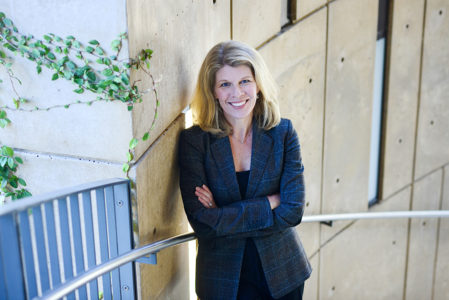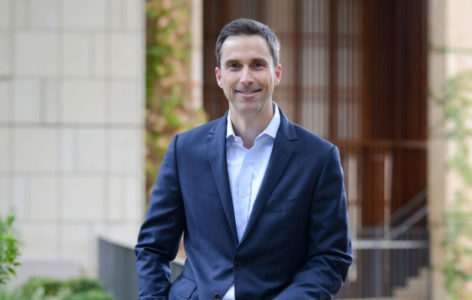Stanford Law School Appoints New Leaders for the Center on the Legal Profession
Stanford Law School has appointed two new faculty co-directors of the Stanford Center on the Legal Profession (CLP): Professors David Freeman Engstrom and Nora Freeman Engstrom. They will succeed Professor Deborah Rhode, the founder and former director of CLP, who passed away in January. Rhode was a world-renowned scholar, teacher and advocate in the fields of legal ethics, access to justice, gender and the profession, and leadership, and the Center works—and will continue to work—to advance those priorities.
“I am thrilled that David and Nora have stepped up to lead the Center and continue Deborah’s critical work in these areas,” said Jenny Martinez, the Richard E. Lang Professor of Law and dean of Stanford Law School. “Throughout her life, Deborah focused on how to strengthen the profession and promote access to justice. Under David and Nora’s guidance, the Center will continue to advance those aims.”
About the Center on the Legal Profession
Founded in 2008, CLP advances the profession through research, policy and advocacy, teaching, and public programs. It focuses on issues critical to the future of the profession including access to justice, diversity and inclusion, regulation of the bar, modernization of legal services, and lawyer leadership. CLP seeks to connect theory with practice and translate scholarly research to real-world impact. The Center is guided by an Advisory Forum made up of prominent leaders at law firms and corporate legal departments who provide insight into the challenges facing the profession.
In its first decade, CLP published the first coursebook on leadership for lawyers and helped to introduce a cutting-edge course on leadership for law students at schools around the country, launched the Legal Design Lab to rethink the delivery of legal services, and helped accelerate efforts to diversify the profession. The Center is currently playing a leading role in two national efforts: the drive in numerous states to reform regulation of the legal services market in order to increase access to justice, and the effort to better align the structural incentives facing law schools to promote affordable, accessible, high-quality legal education that trains students with the competencies they need to be effective in the 21st century. These national efforts continue to be heavily influenced by the lifelong work of Professor Rhode.

“I am truly honored and humbled to take on this leadership role at the Center,” said Nora Freeman Engstrom, Professor of Law and the Deane F. Johnson Faculty Scholar. “Deborah was one of my heroes. She fought tirelessly and unflinchingly for what she believed in: gender equity, racial diversity, attorney accountability, and access to justice. In the years to come, I will do my very best to move this important work forward and build upon Deborah’s towering legacy.”
Nora Freeman Engstrom is a nationally recognized expert in tort law, legal ethics, and complex litigation, with a focus on the day-to-day operation of the civil justice system—how it works, not just in theory, but in practice. Nora Freeman Engstrom has co-authored a legal ethics casebook with Rhode and teaches a pioneering course on legal ethics and plaintiffs’ lawyers. She currently serves as a Reporter for the American Law Institute’s Restatement (Third) of Torts: Concluding Provisions and also co-authors a leading torts casebook, along with Robert L. Rabin, among others.

“The Center will continue to focus on issues near-and-dear to Deborah’s heart, including how best to regulate the delivery of legal services and promote access to justice,” said David Freeman Engstrom, Professor of Law, Associate Dean for Strategic Initiatives, and the Bernard D. Bergreen Faculty Scholar. “But, given Nora’s and my interests, and Stanford’s unique position in the heart of Silicon Valley, we will also likely enlarge the Center’s focus around legal tech, artificial intelligence, and the future of litigation. Among other questions, we’ll ask how we can better train Stanford lawyers for the digital future, and how the civil justice system can and should adapt to the digital age.”
David Freeman Engstrom is an expert in civil procedure, administrative law, legal history, law and technology, and empirical legal studies. Currently, his work and scholarship focus on the intersection of law and artificial intelligence, particularly new legal technologies, both “lawyer-driven” applications and also tools designed to increase access to justice by helping the unrepresented. While serving in the Associate Dean role, he has been instrumental in developing new curricular approaches that equip students with the technological tools they need to navigate a digitized litigation system and world. He was recently appointed to the California working group tasked with proposing changes to lawyer regulation to permit more innovative delivery methods for legal services and has a book project in the works titled “Legal Tech and the Future of Civil Justice.”
About Stanford Law School
Stanford Law School is one of the nation’s leading institutions for legal scholarship and education. Its alumni are among the most influential decision makers in law, politics, business and high technology. Faculty members argue before the Supreme Court, testify before Congress, produce outstanding legal scholarship and empirical analysis, and contribute regularly to the nation’s press as legal and policy experts. Stanford Law School has established a new model for legal education that provides rigorous interdisciplinary training, hands-on experience, global perspective and focus on public service, spearheading a movement for change.
